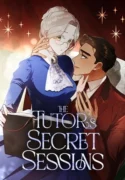Characters Who Shaped Genre Evolution
Every so often, a fictional character crawls out of the pages or flickers onto the screen and promptly starts rearranging the furniture in their entire genre. They aren’t content to just pose heroically on book covers or zip across a movie poster these folks crash the party and sort of rearrange what stories can do. Picture Gandalf leaning on his staff or some shadowy antihero doing the wrong thing for reasons that almost make sense. Suddenly, everything changes. Their ripples don’t stop with the closing credits or the last chapter; the aftershocks are still bouncing around, stirring up inspiration for generations of writers, filmmakers, game designers the whole wild lot.
Fantasy’s Mythic Foundations
There was a time when wizards popped up mostly to mumble a spell or if you were unlucky turn your shoes into frogs and call it a day. Then Tolkien handed us Gandalf. He didn’t just throw magic at problems; there was a kind of gravity to him, a sense that perhaps the whole genre spun around his pointed hat. Over in another wardrobe, C.S. Lewis rolled out Aslan and set those Pevensie kids loose, and suddenly children’s fantasy carried weight alongside its whimsy. You get crowds drawn in to these stories, like the pull of sweet bonanza, tossed between delight and the urge to hunt for some more profound meaning. Fantasy stories, thanks to these pioneers, strutted into the literary salons and didn’t look improper, and thereafter, someone like Ursula K. Le Guin or J.K. Rowling could weave their worlds without anyone blinking twice.
Revolutionary Female Protagonists
You could say Jane Eyre changed the locks on the doors of fiction. Charlotte Brontë didn’t hand us just another Victorian waif; Jane wouldn’t fade into the upholstery or endure nonsense for the sake of politeness. She sticks to her beliefs quietly, sometimes grimly like someone who knows if she lets go, she’ll tumble into someone else’s plan. There aren’t dramatic speeches or revolutions here, just a stubborn, slow-burn refusal to be anyone but herself. Generations later? Every complicated, stubborn woman steering her narrative owes Jane a thank you note.
Detective Fiction’s Logical Pioneer
Sherlock Holmes he’s not really like those detectives with their trench coats and gut feelings. Conan Doyle dropped him right into a world where observation becomes a kind of superpower. Holmes notices the out-of-place speck, the muddy imprint, the handwriting nobody else gave a second glance. With Watson alongside, the genre gets a buddy system and a back-and-forth that still pops up in every crime drama worth its salt. Because of Holmes, readers started asking less about who did it, more about how anyone could possibly put the pieces together. His way of thinking it’s left fingerprints on mysteries ever since.
Cinema’s Antihero Evolution
At first, movies liked their heroes clean-cut, sleep-deprived maybe, but never murky. Then came Michael Corleone: the son you’d trust at Thanksgiving, the kind of guy who turns power inside out. Film noir slipped its way into the mix, offering up protagonists whose bad decisions added up to something twistedly human. Try rooting for them sometimes you do, sometimes you don’t, but you can’t look away. Without these morally ambivalent legends, all those complex TV leads and ambiguous movie heroes might still be waiting backstage.
Science Fiction’s Heroic Journey
Somewhere between the dust of Tatooine and the cold corridors of the Nostromo, a couple of characters hit the gas pedal for science fiction. Luke Skywalker awkward farm boy, accidental legend gives us that classic myth in a galaxy too big for anyone’s boots. And then Ripley stalks through Alien, rewriting what a sci-fi hero looks like, never mind her gender; she’s just plain ferocious when it counts. These journeys made sure science fiction could vault from mythic quest to bold new commentary, with enough leftover spark to light up superhero blockbusters and space epics for decades.
Final Thoughts
None of these characters really followed the instructions. Where others colored in the lines, these invented new ones or scribbled right over the page. By charging headlong into new territory, they left behind maps (sometimes treasure maps, sometimes just the vague outlines of possibility) for everyone else in their wake. Their footprints better yet, the storms they set spinning keep stirring things up, making sure stories don’t grow too comfortable or predictable, not for creators, not for the rest of us chasing after them.












